The desire to bring the outside in remains a strong interior trend, here are 9 ways to introduce natural materials into your scheme
Enhancing your home with natural materials can introduce earthy colors and rustic textures that can boost our well-being. Designers reveal how best to bring the outdoors in
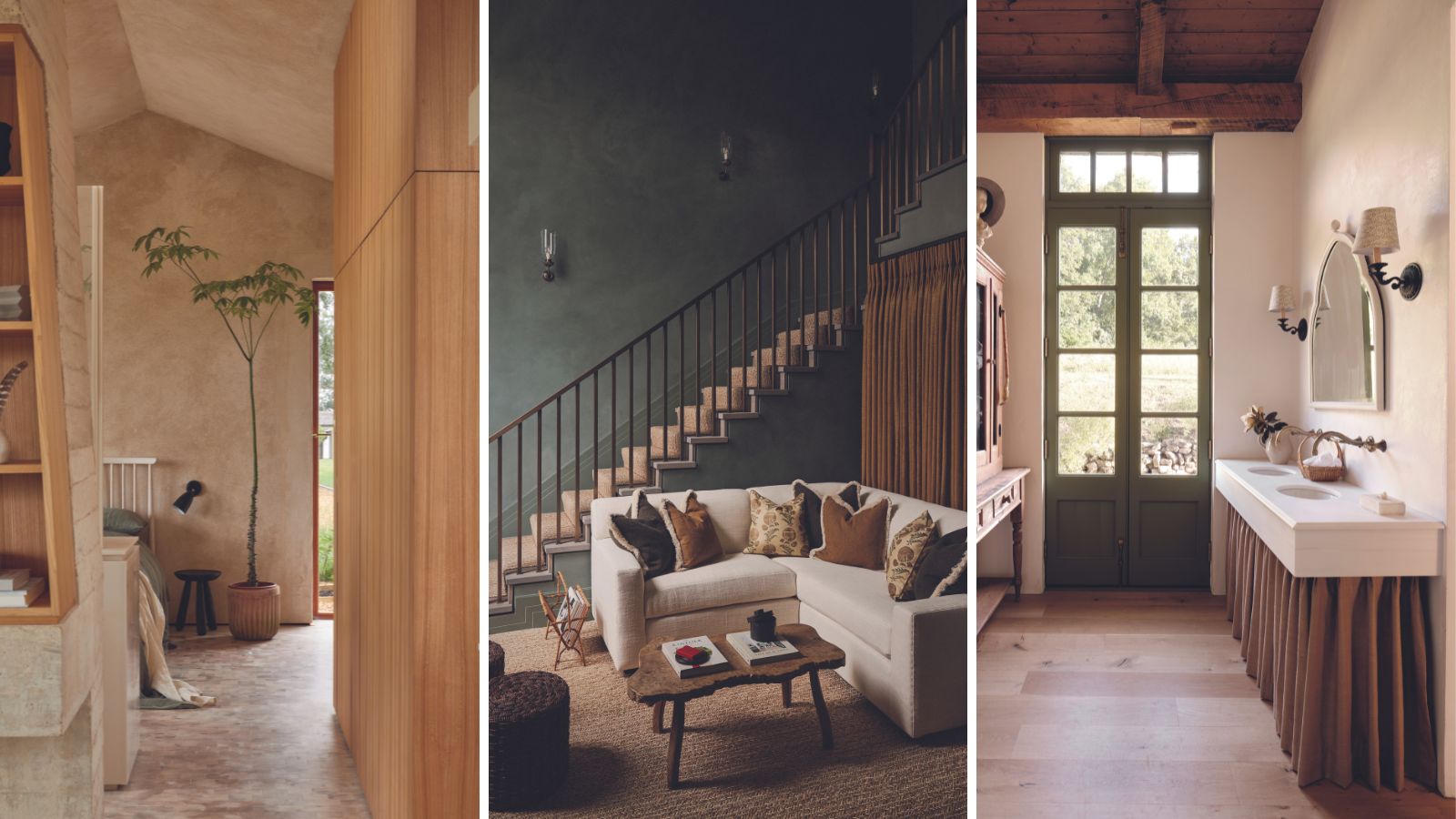
- 1. Keep pretty plaster uncovered
- 2. Introduce antique wooden furniture
- 3. Incorporate colors from the natural world
- 4. Make nature-inspired motifs a focal point
- 5. Combine with modern elements for contrast
- 6. Layer different shades of an earthy color
- 7. Clad your walls in bamboo
- 8. Create a collage with different earthy materials
- 9. Pair wood with wood

Many of us feel a great sense of connection to nature and the outdoors. The strong link between being outdoors and positive mental health has been proven, and for a lot of us, nature is what we seek out when we feel frazzled by the challenges of daily life.
This might explain why more of us are embracing natural elements in our interior design schemes, opting for earthy palettes rich with rustic textures and characterized by organic building materials like stone, plaster, and wood.
Helping to create a grounding and relaxing space, taking inspiration from the beauty of the outdoors for our home decor ideas will create a home that will feel utterly timeless.
9 ways to introduce natural materials into your decor scheme
We spoke to a host of interior design experts about how they incorporate natural elements into their projects and the effect they can have on a space. Here's what they had to say.
1. Keep pretty plaster uncovered
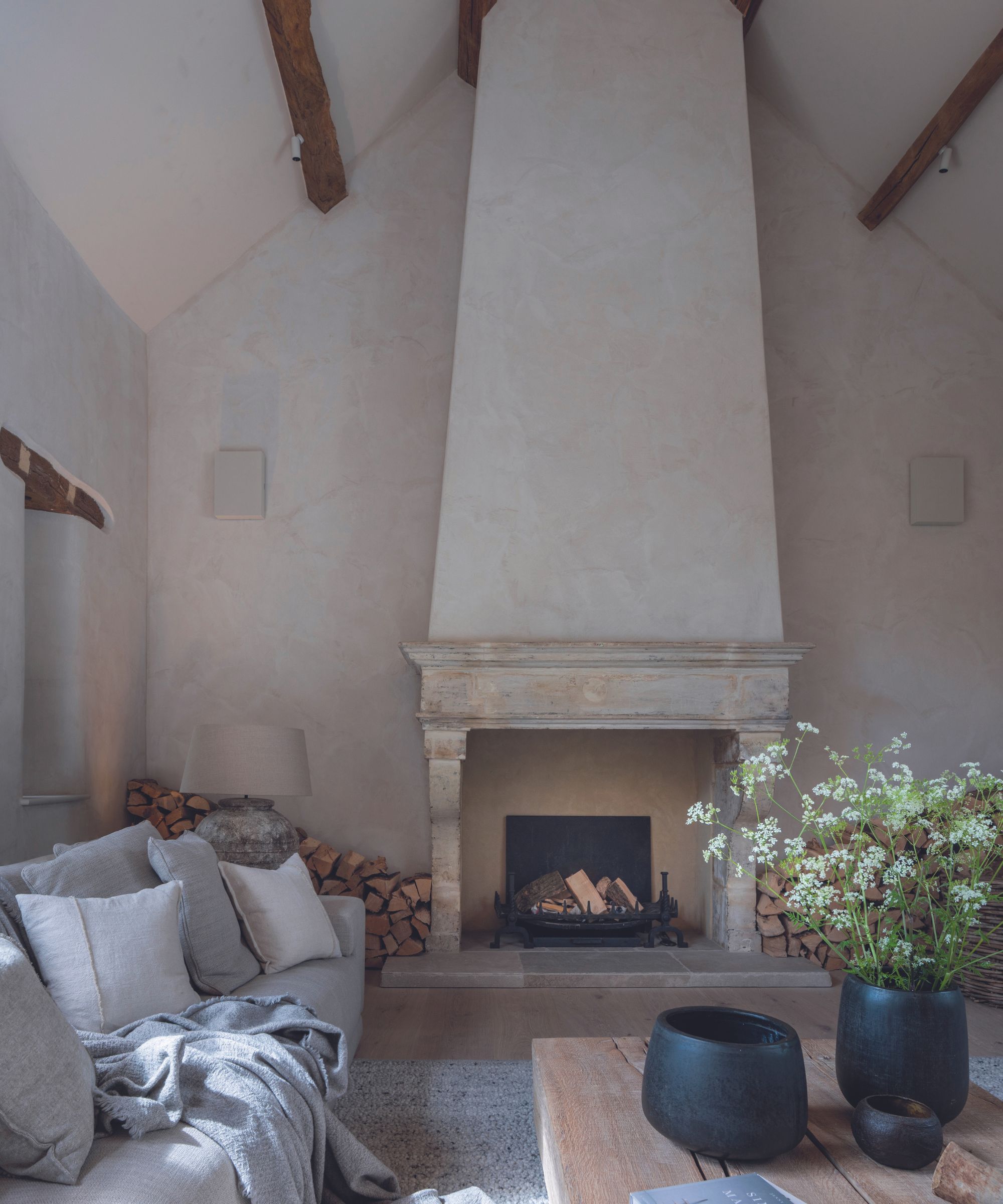
Clay plasters have been used in the building of homes for thousands of years but today decorating with plaster is seeing a resurgence in popularity.
The reason is twofold. Aside from their characterful finish, using unfired clays and sands is a more sustainable alternative to gypsum plaster and paint – it allows buildings to breathe and absorb indoor humidity.
Also, left exposed and unpainted they lend an on-trend muted, cloudy aesthetic. Interior designer Janey Butler used a product from Clayworks for the walls of this sitting room in a 16th-century Cotswolds barn which she worked on. At the center is a stunning reclaimed French limestone fireplace.
2. Introduce antique wooden furniture
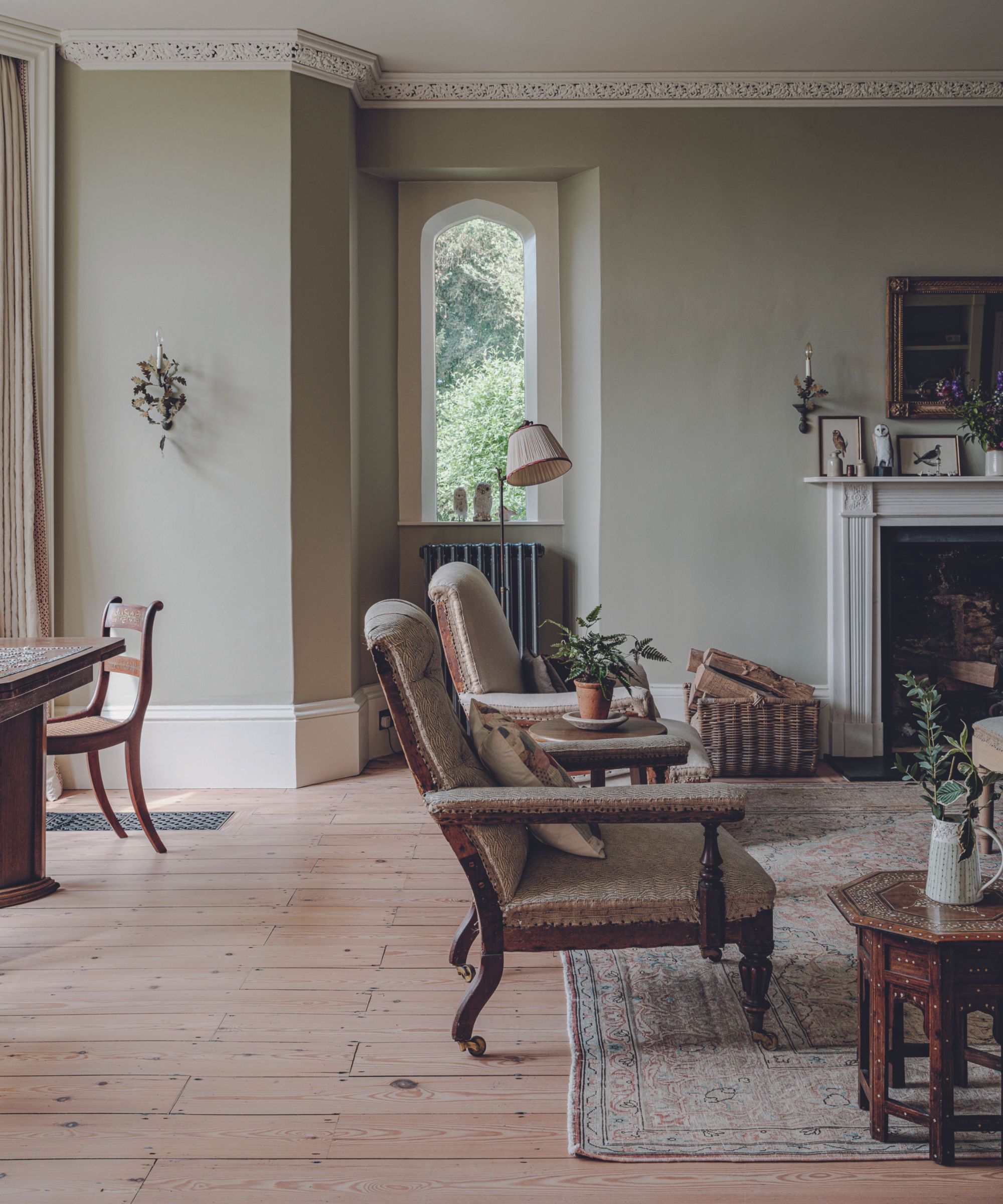
Stripping back layers to reveal the construction of any historic property will bring its original building materials to the foreground. ‘Here, both antique chairs have been deconstructed to show the craftsmanship in their upholstery,’ says interior designer Anna Haines who worked on this house near Bath in the UK.
‘The bones of the house are so beautiful we wanted to reflect this with the construction of the furniture.’ A vintage Tabriz rug from Farnham Antique Carpets adds a further layer of faded grandeur to the room.
We explore how to style antique furniture in our dedicated feature.
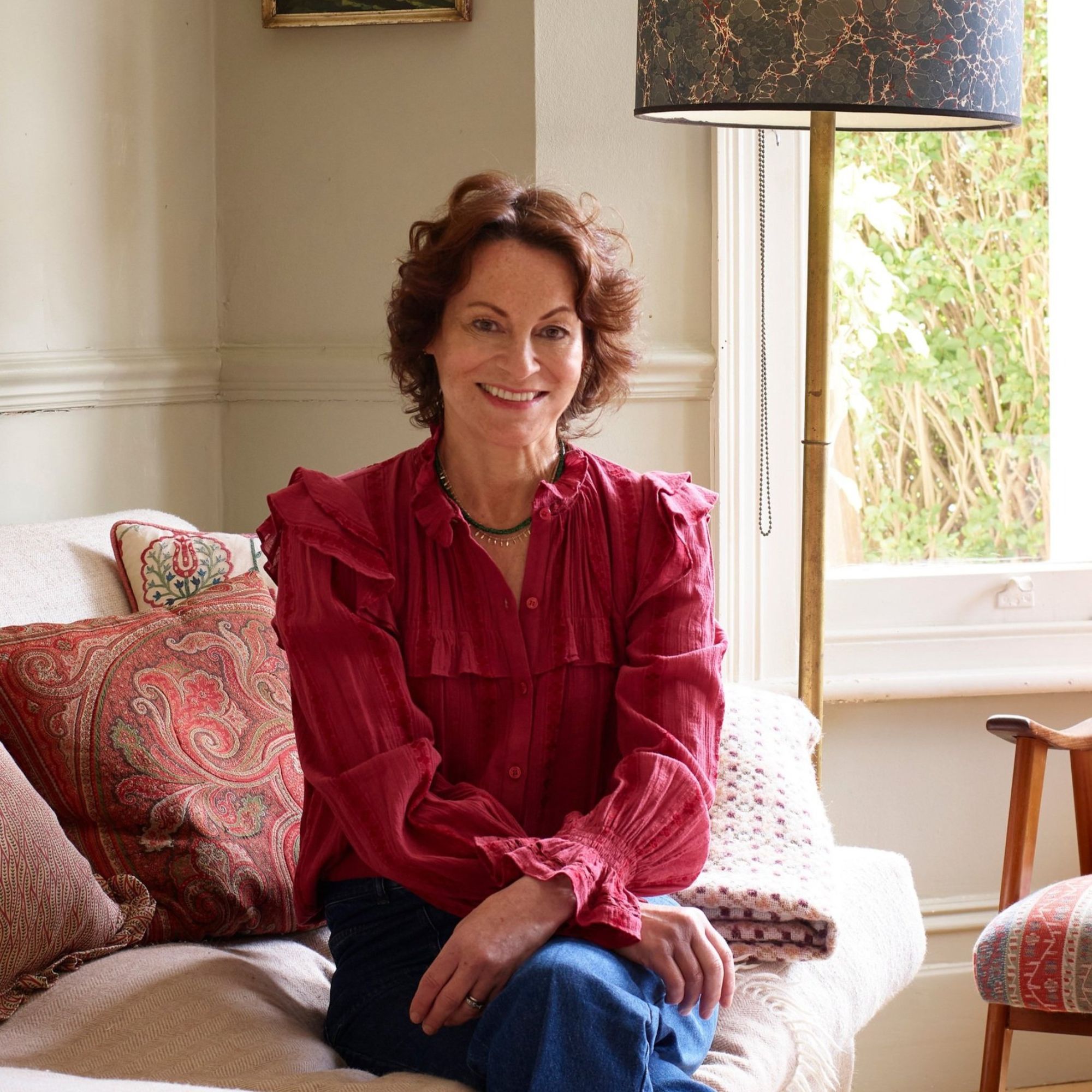
Anna Haines has been running her London-based interior design business for over 12 years, working on both residential and commercial projects worldwide.
3. Incorporate colors from the natural world
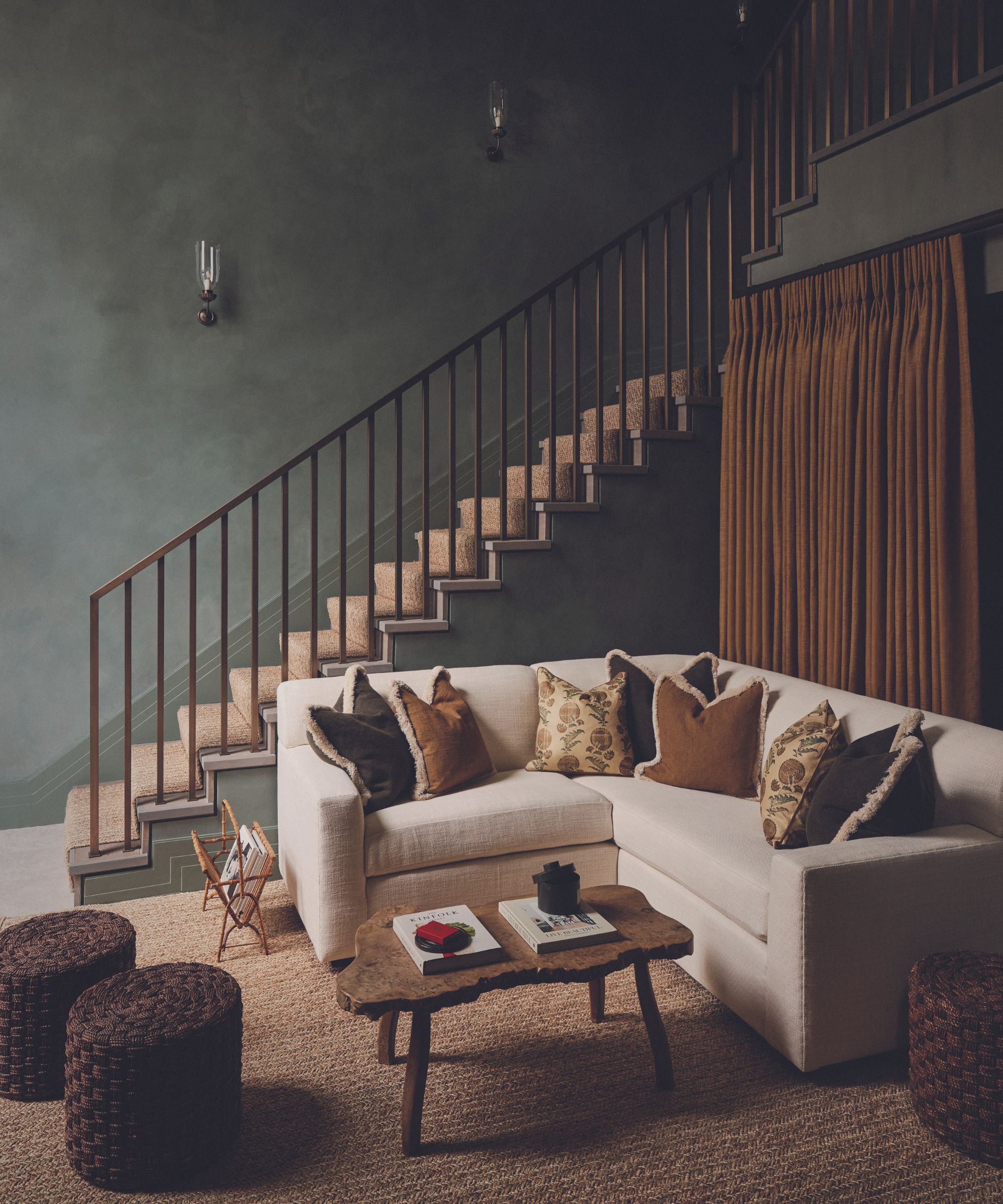
Colors that are inspired by nature are the perfect companions to furniture and furnishings made of natural wood and materials.
In this sitting room scheme by Albion Nord, the scheme is grounded with earthy green walls, layered with rust-colored curtains and cushions that set off the woven stools, linen sofa, and abaca rug. We look at more green room ideas in our separate piece.
‘Texture and materiality are often a primary focus in our interior schemes,’ explains creative director Ottalie Stride. ‘Rather than using an abundance of bright colors and busy prints, we prefer to use more natural, earthy color schemes and focus on texture and natural materials instead'.
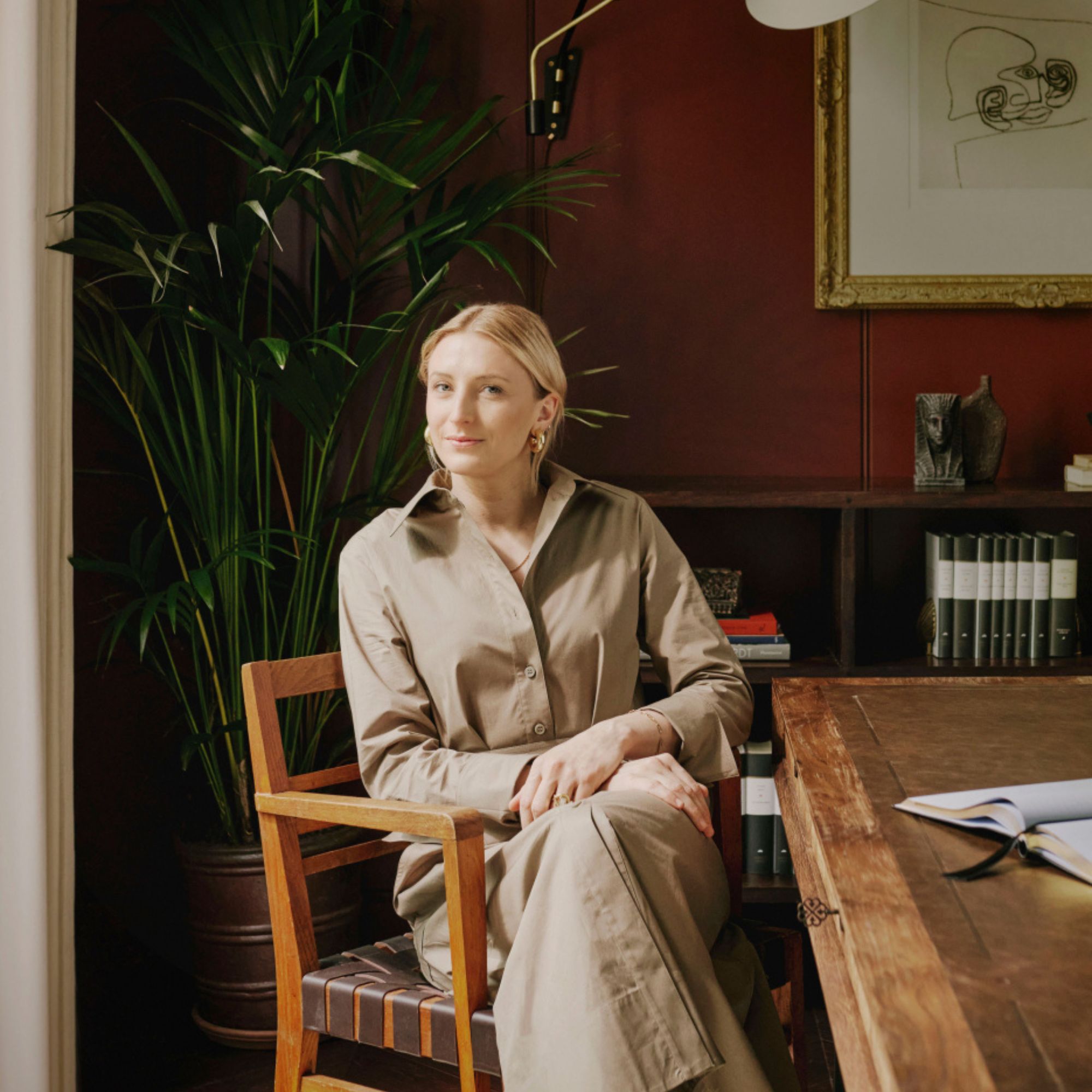
Ottalie Stride is the creative director of Albion Nord design studio. She used to work as an Interior Designer at Veere Grenney and as a Designer for CPC London.
4. Make nature-inspired motifs a focal point
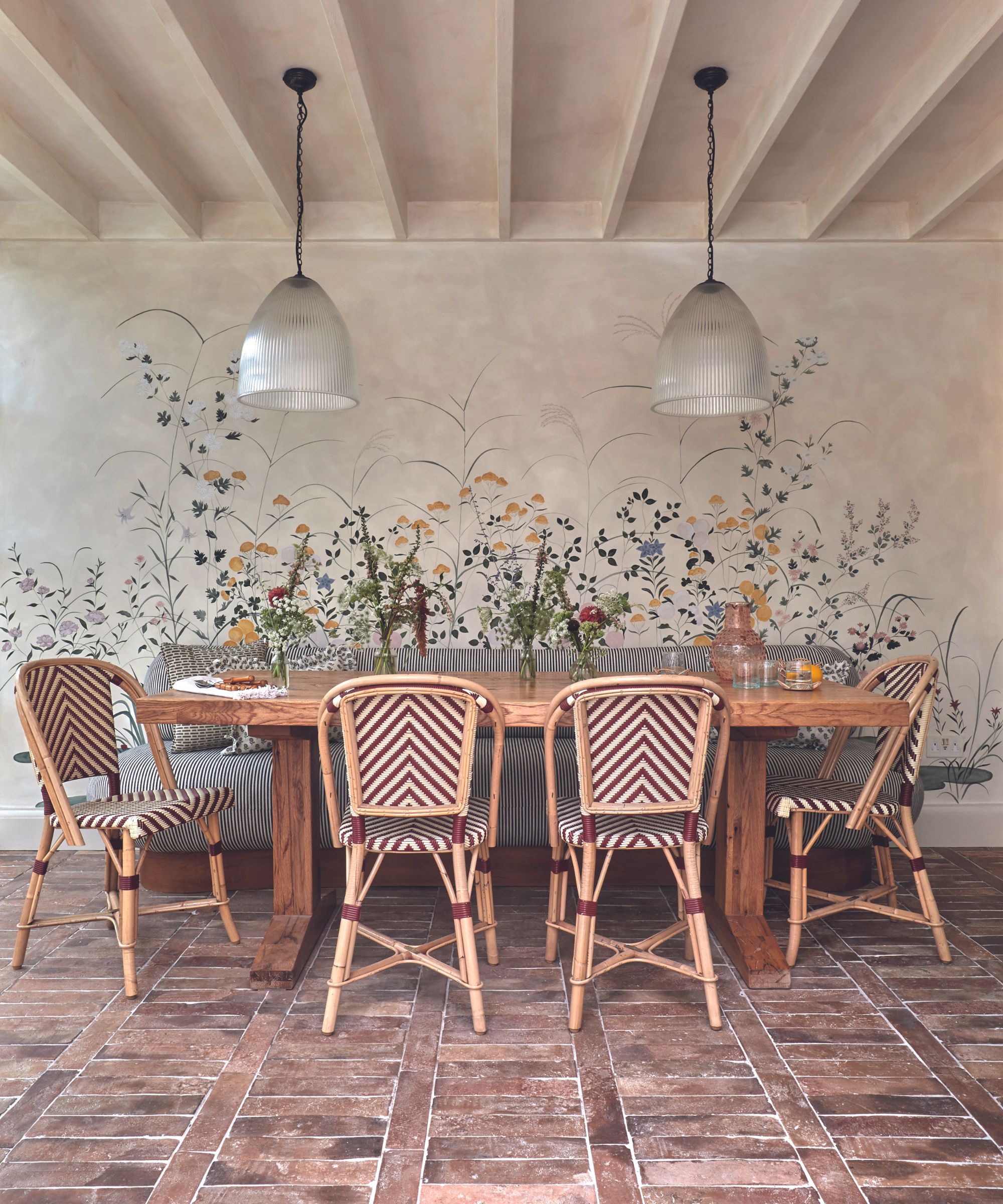
Using materials such as terracotta floor tiles and lime-washed walls goes a long way to achieving that. Here, Tiffany Duggan, founder of Studio Duggan, introduced an extra dimension by commissioning a mural by decorative artist Eugenia Barrios Osborne inspired by wildflowers.
Tiffany explains, ‘We chose furniture in a combination of wood and rattan which are all effective ways of creating that connection to nature. An alternative approach to wall mural ideas would be to use panoramic mural-style wallpaper ideas or an abundance of floral art'.
5. Combine with modern elements for contrast
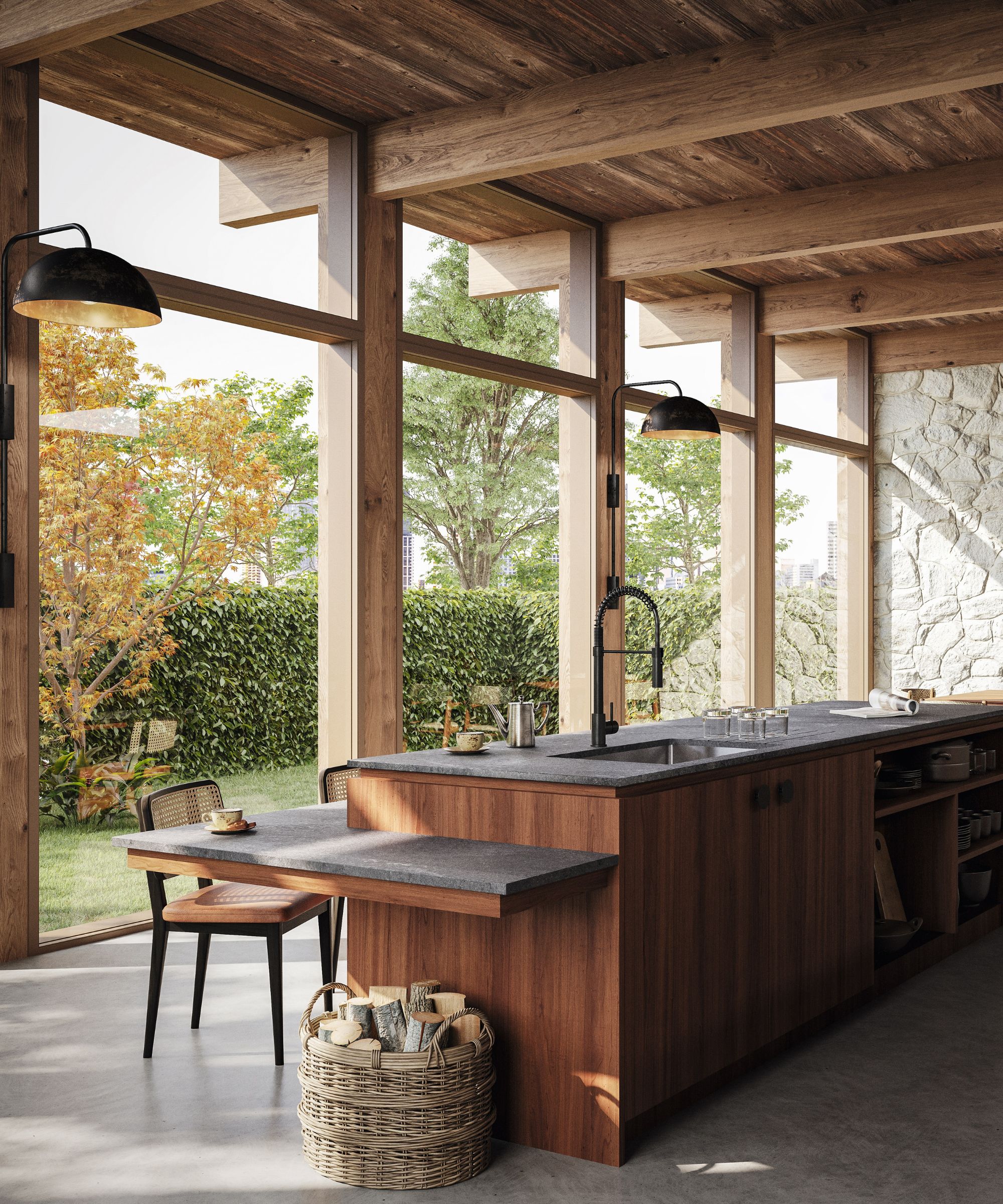
For a more industrial aesthetic, bring in something man-made – it will have the effect of making the natural elements stand, acting as a handbrake to stop and appreciate the scene.
This kitchen, by Roar Architects, features a rough concrete-style worktop by Caesarstone which contrasts elegantly with the characterfully grained wooden cabinetry. Adding to the mix are windows with oak frames, wooden ceiling beams, and an exposed stone wall. A beautiful blend of warm and cool.
6. Layer different shades of an earthy color
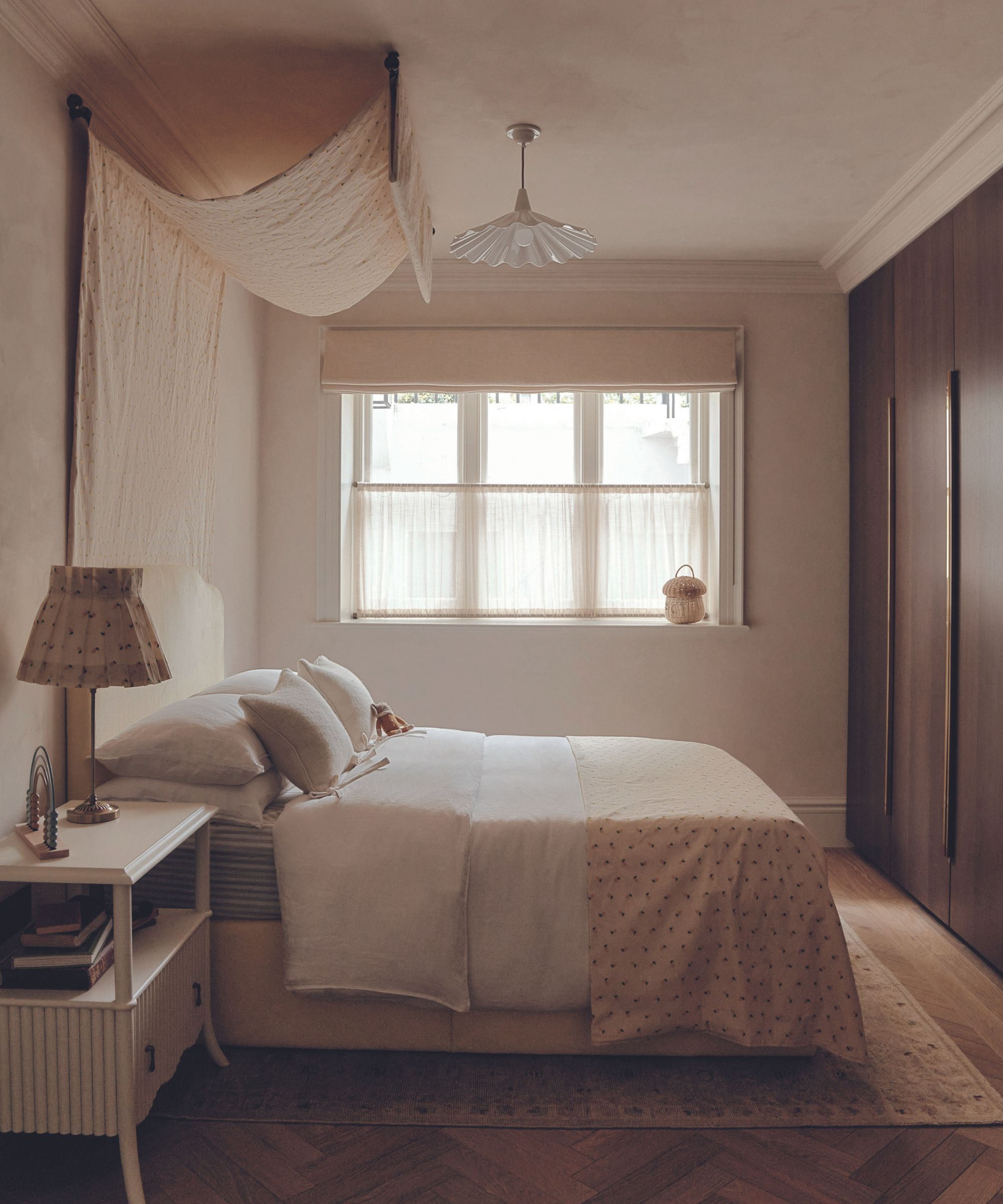
When exploring how to decorate with earthy colors, one way to ensure cohesion is to choose a light color and then gently follow a tonal path to its strongest iteration.
In this bedroom designed by Banda, they started with walls and ceilings in the same color of golden sand and then increased the volume, using deep mahogany on the wardrobes to ground the space.
‘The design narrative draws on the natural world showcasing old and new pieces of artistry, complemented by an earthy color palette and contemporary comfort in its purest forms,’ explains the company’s founder Edoardo Mapelli Mozzi.
7. Clad your walls in bamboo
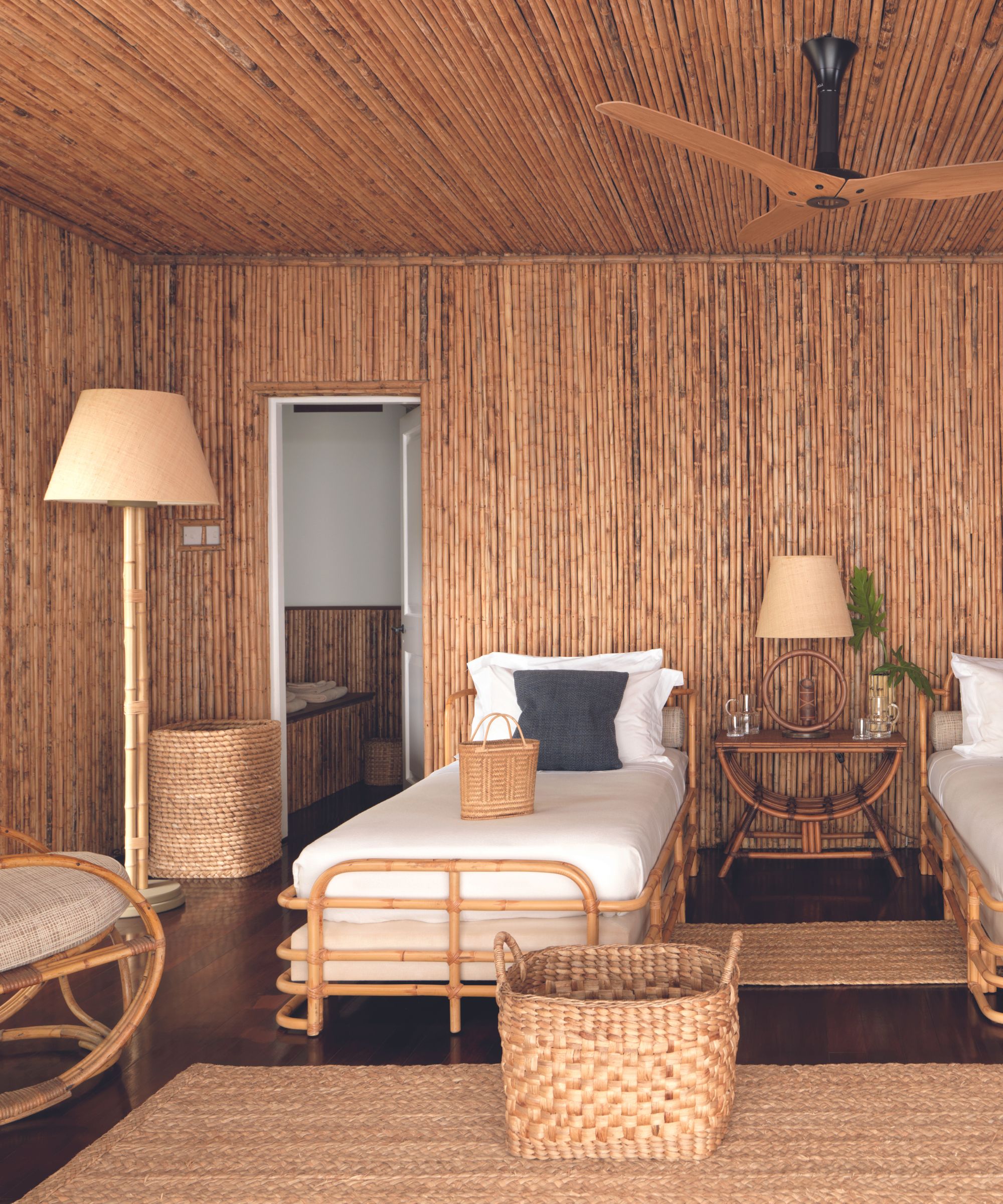
Cladding the walls and ceilings in cured bamboo might not be appropriate for all environments and lifestyles but it immediately lends a beach house chic element to a space.
Bamboo is a traditional building material in the Caribbean and when used to clad a wall, bamboo brings a distinctive linear rhythm to the room.
This beach house – a study in neutrals and natural materials – was designed by Veere Grenney for a client in Mustique. Much of the furniture is vintage and rush matting is laid on sapele wood floors.
8. Create a collage with different earthy materials
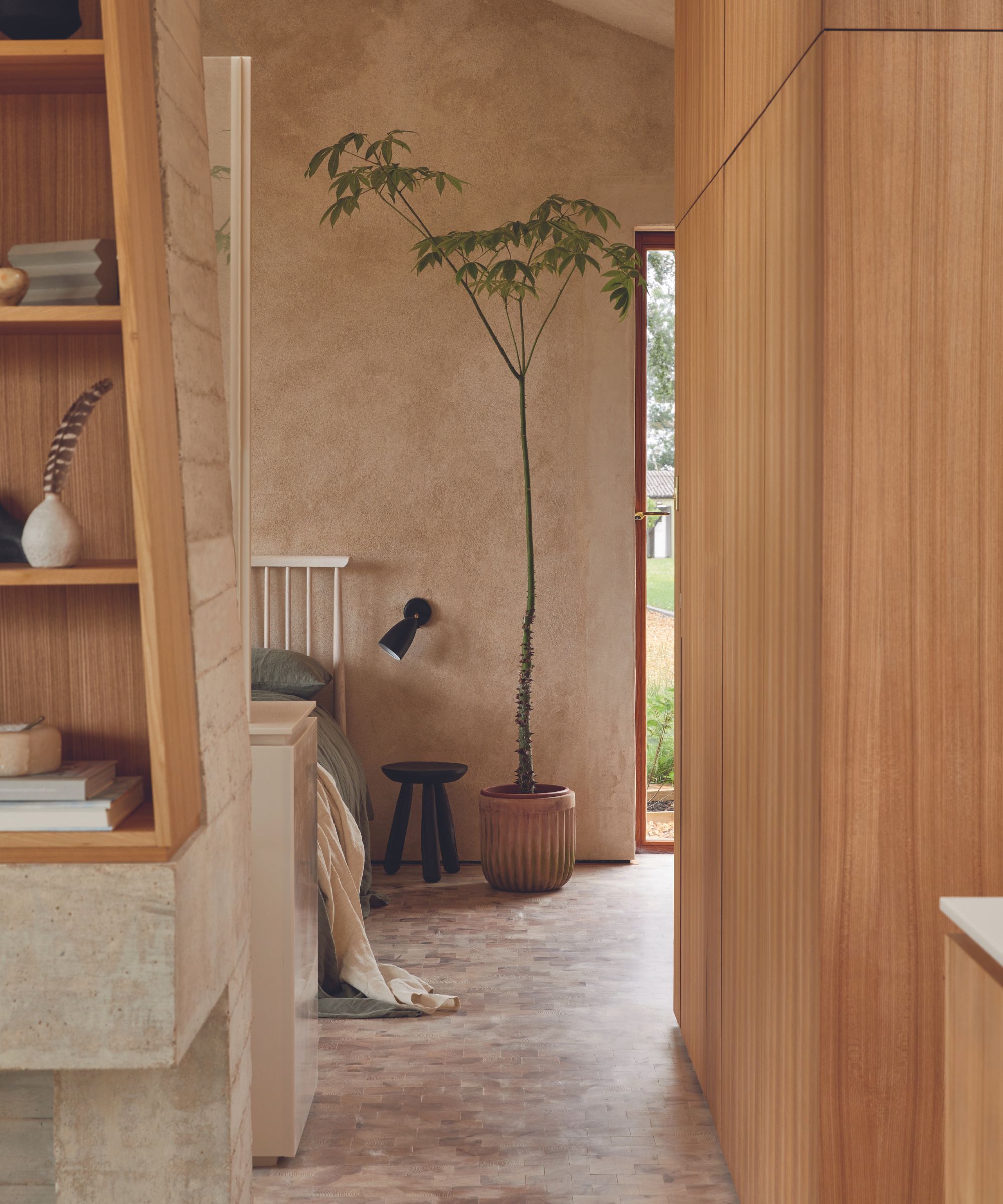
With their exposed features, large windows, and rural settings, barn conversion ideas are well suited to interior schemes that celebrate natural materials. Here, architectural and interior design studio Hutch was asked by its clients to design a holiday retreat that had a deep connection to the outdoors.
The result is a textural, light-filled space that has a neutral palette that sits comfortably within its surroundings. ‘We let the materials do the rest,’ says the team. The guest bedroom features textured walls by Clayworks, bespoke joinery made from elm, and a silk floss tree introducing a touch of green to the room.
9. Pair wood with wood
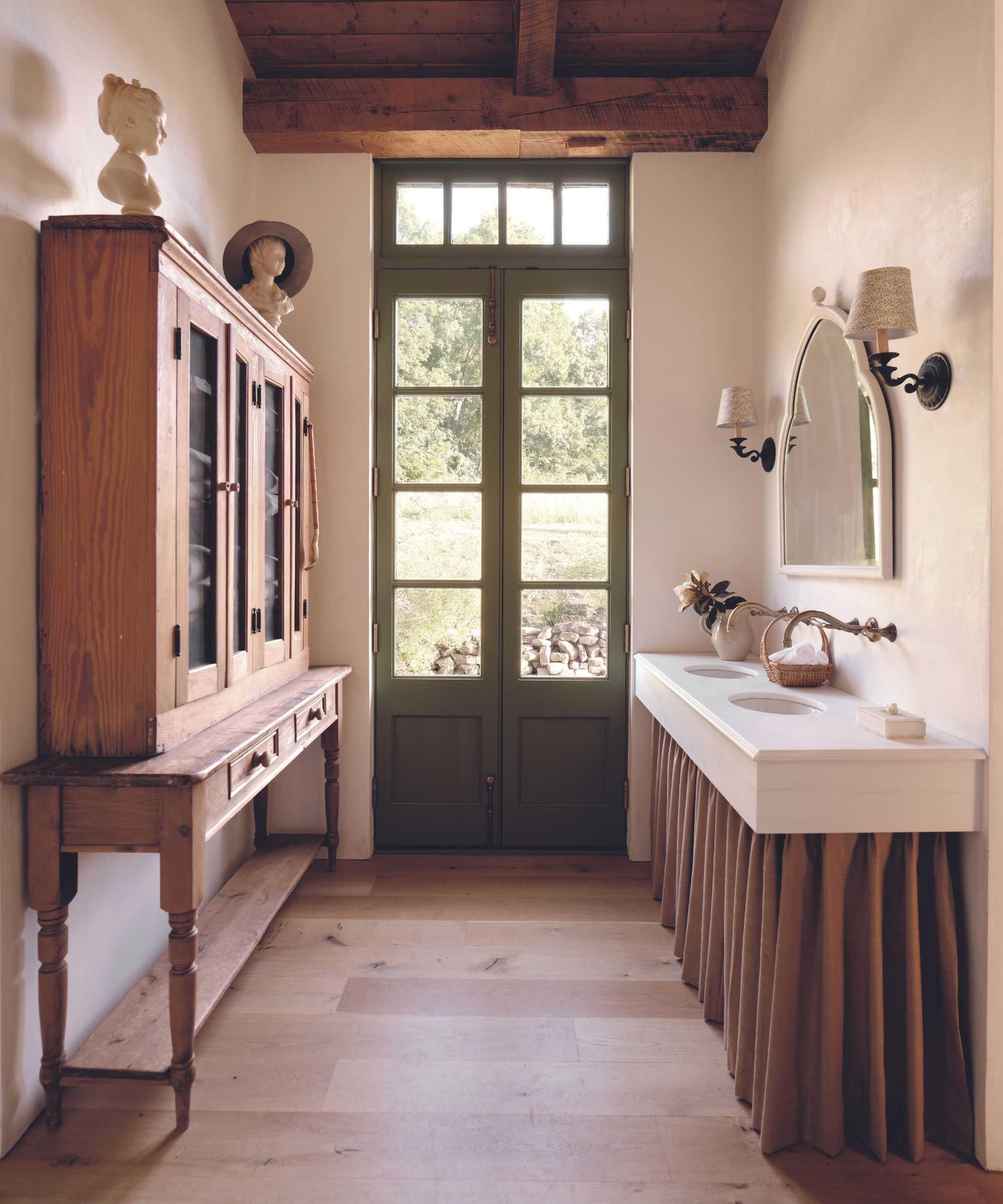
Mixing different types of wood will always work in a scheme. The variations of grains and knots alongside the age difference provide endless interest. When it came to decorating her principal bathroom, Tennessee-based interior designer Trinity Shay wanted to incorporate a vintage dresser she’d found in an antique shop in Nashville.
‘I wanted to draw attention to the natural material and palette in the timber frame throughout the house and here I also wanted to give a little moment of surprise by incorporating the green doors to make it feel like an extension of the outdoors'.
There really is no better way to feel connected to the outdoors than introducing its beautiful offerings into your home. We intrinsically connect to materials found in nature, and surrounding ourselves with them helps us to go about our daily lives with a feeling of calmness.
Colors and textures drawn from nature tend to harmonize with one another, so it's a simple way to create a decorative scheme too. Pair earthy colors with rich natural textures and ground with something sturdy like wood or stone, and you're well on your way to creating a happy haven.
Sign up to the Homes & Gardens newsletter
Design expertise in your inbox – from inspiring decorating ideas and beautiful celebrity homes to practical gardening advice and shopping round-ups.

Arabella is a freelance journalist writing for national newspapers, magazines and websites including Homes & Gardens, Country Life, The Telegraph and The Times. For many years she has specialized in writing about property and interiors, but she began her career in the early 2000s working on the newly launched Country Life website, covering anything from competitions to find the nation’s prettiest vicarage to the plight of rural post offices.
-
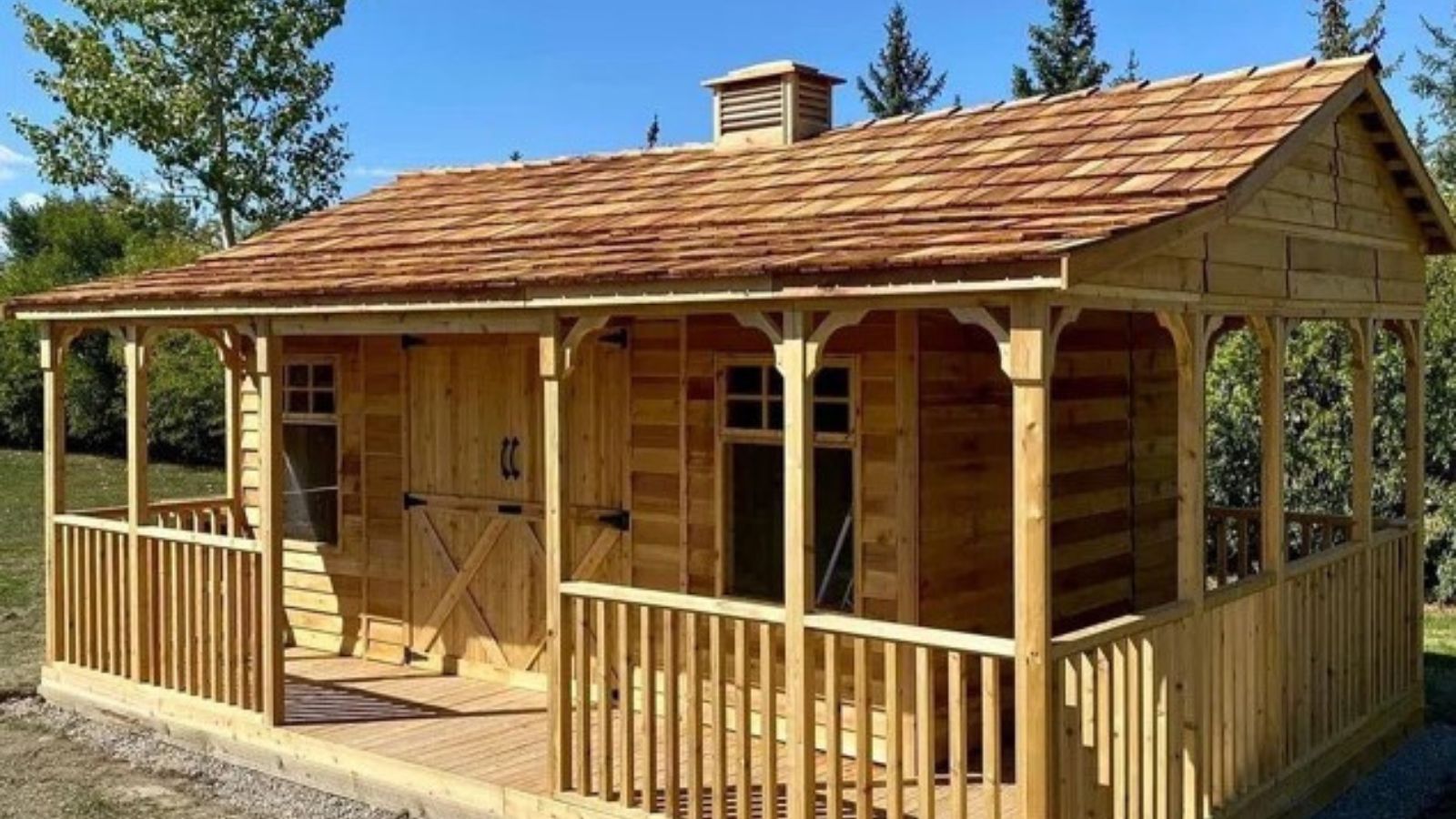 There's a rustic cottage hiding on Wayfair – it may seem unorthodox, but this tiny home taps into a growing nomadic trend (and it's under $16K)
There's a rustic cottage hiding on Wayfair – it may seem unorthodox, but this tiny home taps into a growing nomadic trend (and it's under $16K)This 'wonderful' wooden farmhouse perfects a growing trend that's changing how we see our homes – it's tiny, but somehow, it doesn't sacrifice comfort
By Megan Slack
-
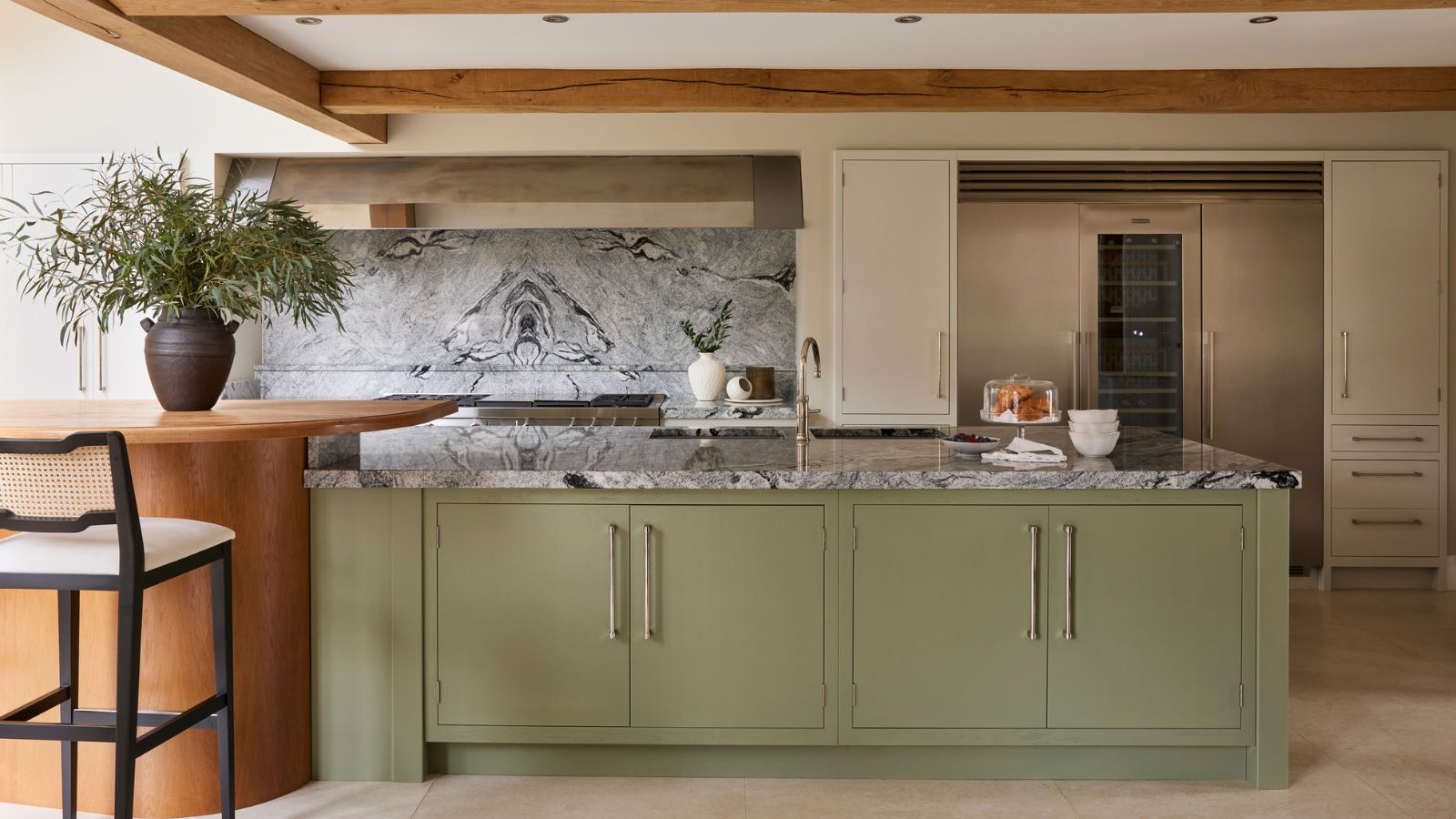 5 freezer cleaning mistakes you must avoid – or risk compromising your food quality and shortening the lifespan of your appliance
5 freezer cleaning mistakes you must avoid – or risk compromising your food quality and shortening the lifespan of your applianceAvoid these blunders for a safer kitchen
By Seraphina Di Mizzurati